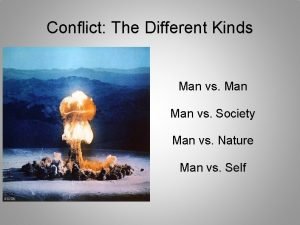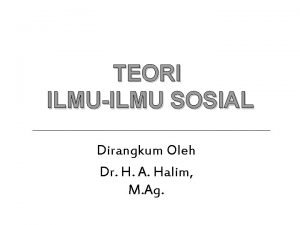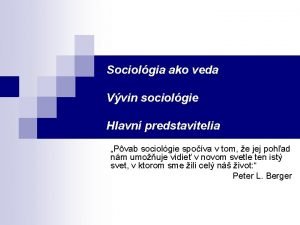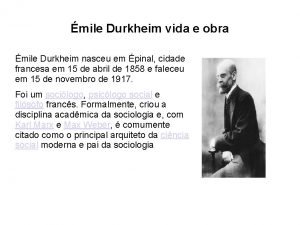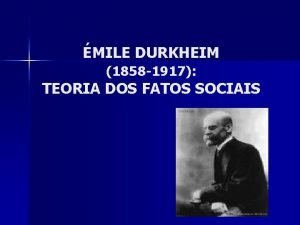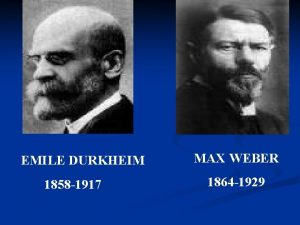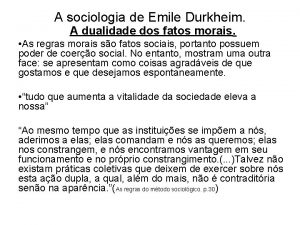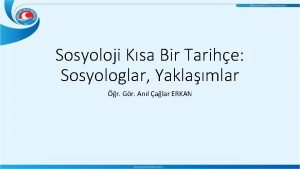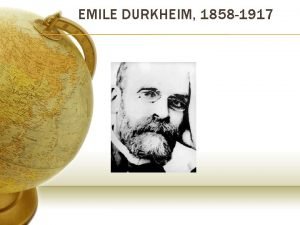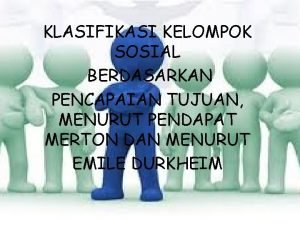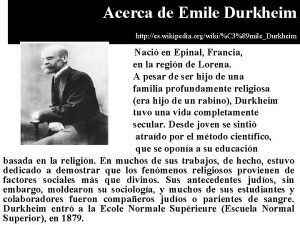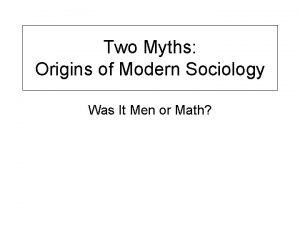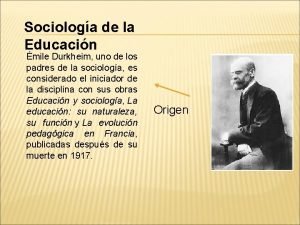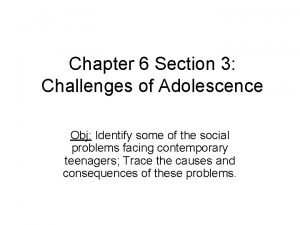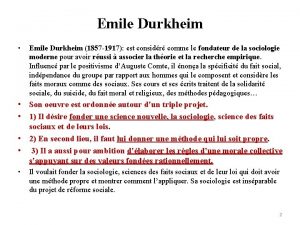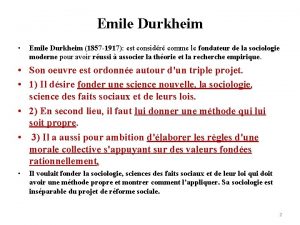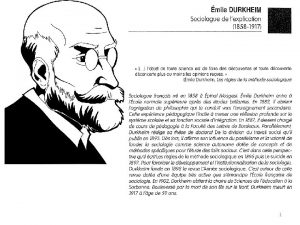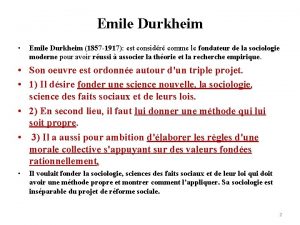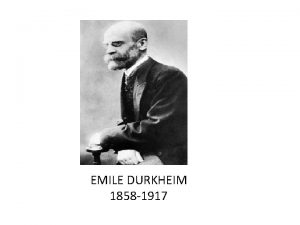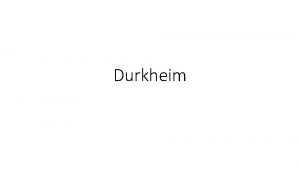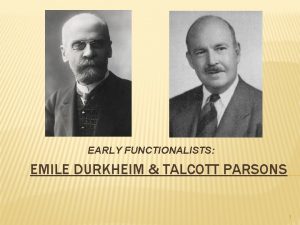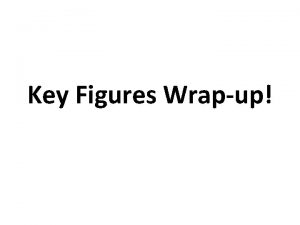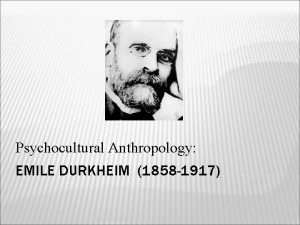EMILE DURKHEIM Counterargument versus Marx THEORY OF MAN













- Slides: 13

EMILE DURKHEIM Counterargument versus Marx

THEORY OF MAN • Influenced by Darwin’s “Survival of the Fittest” • Man as unequal/different not as an essence but as a functional feature of organic solidarities

THEORY OF MAN • The individual is shaped and defined by the society that he or she is part of (structuralist)…. eg. His work on suicide • Two factors that come into play: 1) social solidarity and 2) moral integration

THEORY OF MAN • EGOISTIC SUICIDE - the result of a weakening of the bonds that normally integrate individuals into the collectivity: in other words a breakdown or decrease of social integration. • A result of excessive individuation

THEORY OF MAN • ANOMIC SUICIDE - reflects an individual's moral confusion and lack of social direction, which is related to dramatic social and economic upheaval

THEORY OF MAN • Altruistic suicide: is characterized by a sense of being overwhelmed by a group's goals and beliefs. [6] It occurs in societies with high integration, where individual needs are seen as less important than the society's needs as a whole.

THEORY OF SOCIETY • Fatalistic suicide: the opposite of anomic suicide, when a person is excessively regulated, when their futures are pitilessly blocked and passions violently choked by oppressive discipline.

THEORY OF MAN TYPES OF SUICIDE (PROOF OF STRUCTURAL BENT) High moral regulation/de-individuation: 1) altruistic, 2) fatalistic Low social integration/low moral regulation/too much individuation 3) Egoistic 4) anomic suicide

THEORY OF SOCIETY • Two types of society 1) Mechanical solidarities – characterized by sameness, and having a strong conscience collective 2) Organic solidarities – characterized by difference, and represented by the DIVISION OF LABOR

THEORY OF SOCIETY • THE DIVISION OF LABOR • Greater concentrations of productive forces and capital investment seemed to lead modern industry, business, and agriculture toward greater separation and specialization of occupations, and even a greater interdependence among the products themselves.

THEORY OF SOCIETY • Society as an ecosystem - a system of interrelated parts producing social solidarity and progress

THEORY OF SOCIETY • "The soldier seeks military glory, the priest moral authority, the statesman power, the businessman riches, the scholar scientific renown. Each of them can attain his end without preventing the others from obtaining theirs. "

THEORY OF SOCIAL CHANGE EQUILIBRIUM – ORDER/BALANC E
 Man vs. society conflict
Man vs. society conflict Fakta sosial menurut emile durkheim
Fakta sosial menurut emile durkheim émile durkheim
émile durkheim Vida e obra de émile durkheim
Vida e obra de émile durkheim Emile durkheim 1858 a 1917
Emile durkheim 1858 a 1917 Emile durkheim fato social
Emile durkheim fato social Emile durkheim fato social
Emile durkheim fato social Emile durkheim intihar teorisi
Emile durkheim intihar teorisi Emile durkheim childhood
Emile durkheim childhood Klasifikasi kelompok sosial
Klasifikasi kelompok sosial Nociones vulgares
Nociones vulgares Social integration by emile durkheim
Social integration by emile durkheim Durkheim y la sociología de la educación
Durkheim y la sociología de la educación What are the challenges of adolescence
What are the challenges of adolescence
